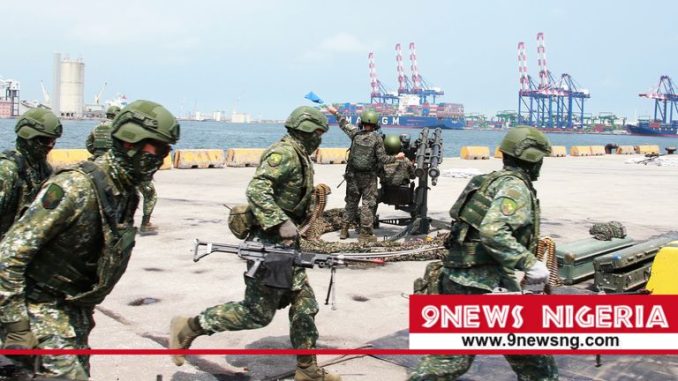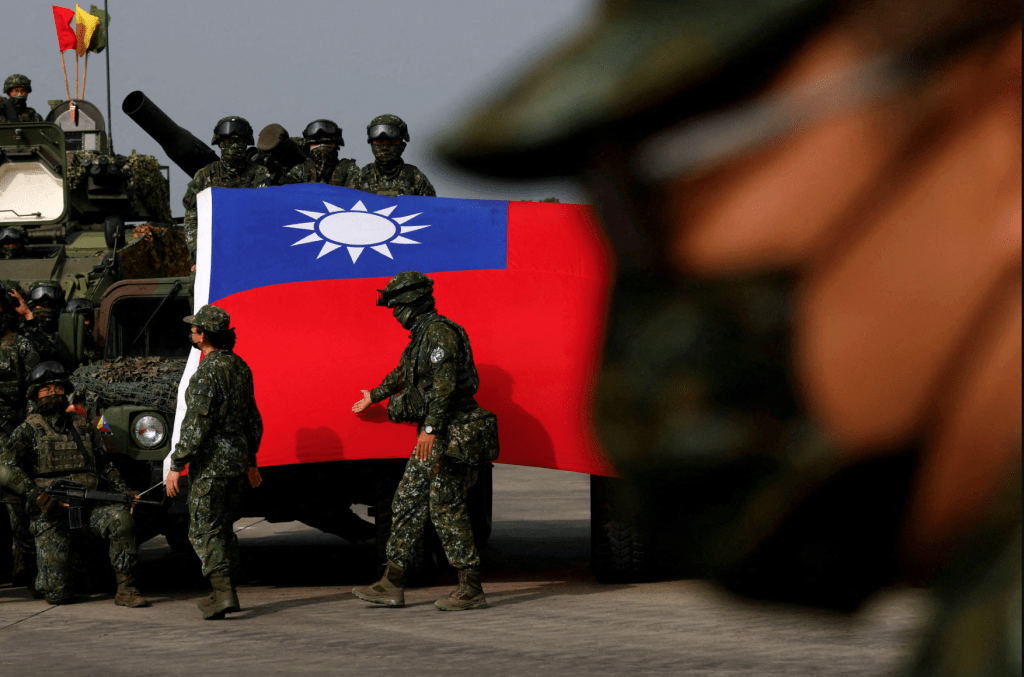
The Possibility of China Invading Taiwan
The geopolitical landscape of East Asia is tense, with the possibility of China invading Taiwan amidst the latter’s nationwide military exercise becoming increasingly plausible. The situation is complex, with historical disagreements, political tensions, and economic considerations all playing their part. This possibility is not only a matter of concern for Taiwan but also has significant implications for the global community.
As China flexes its military muscle, the world watches anxiously, contemplating the potential consequences of such an invasion. Would it merely be a local conflict contained within the Taiwan Strait, or could it escalate into a global crisis? This article aims to delve deep into this pressing question, analyzing the potential impacts and consequences of such an event.
Understanding Taiwan’s Nationwide Military Exercise
The Taiwan nationwide military exercise is not merely an act of routine preparedness, but also a strong message to China and the world. It is a demonstration of Taiwan’s resilience and readiness to defend its sovereignty against any potential aggression. These exercises include a variety of operations, such as air defence drills, naval exercises, and ground force manoeuvres, aimed at enhancing Taiwan’s ability to counter any invasion.
However, these exercises are not without their risks. They may inadvertently provoke China, sparking tensions and potentially leading to a conflict. The delicate balance between demonstrating strength and avoiding provocation is a tricky line to tread.
Despite this, Taiwan remains steadfast in its commitment to these exercises, viewing them as crucial for its national security. The question remains, though: what would be the implications of a potential Chinese invasion?

Historical and Political Context: China-Taiwan Relations
To understand the current tensions, it’s essential to delve into the historical and political context of China-Taiwan relations. After the Chinese civil war in the 1940s, the defeated Nationalists retreated to Taiwan, while the victorious Communists established the People’s Republic of China. Since then, the Taiwan Strait has been a hotbed of political tension, with Beijing viewing Taiwan as a breakaway province that must be reunited with the mainland, by force if necessary.
Over the decades, the relationship between the two has been marked by periods of relative calm and episodes of heightened tension. The current situation, with Taiwan’s military exercises and China’s increasingly assertive stance, is one of the latter.
The stakes are high, and the possibility of a military conflict has far-reaching implications, not only for the two directly involved parties but also for the international community.
The Implications of a Potential Invasion: An Analysis
A potential invasion of Taiwan by China would have significant geopolitical, economic, and humanitarian implications. Firstly, such an event would be a clear violation of Taiwan’s sovereignty creating a precedent that might encourage further territorial disputes globally. This could destabilize the already fragile global political order.
Furthermore, an invasion would likely lead to a severe humanitarian crisis. The potential for large-scale violence and displacement of people is high, leading to immense suffering and loss of life. Additionally, the crisis could severely impact Taiwan’s economy, disrupting its position as a significant player in the global supply chain, particularly in the tech industry.
Lastly, an invasion would necessitate a response from the international community. The question then becomes: how would the USA and its allies respond to a China invasion of Taiwan?
How Would the USA and Allies Respond to China’s Invasion of Taiwan?
While the USA does not officially recognize Taiwan as a separate country, it has a long-standing commitment to ensuring the island’s defence. In the event of a Chinese invasion, the USA and its allies would likely respond in a variety of ways.
The first response would likely be diplomatic, involving condemnation of China’s actions and attempts to mediate the conflict. Additionally, economic sanctions against China could be implemented, aiming to pressure Beijing to withdraw its forces.
However, the potential for direct military intervention cannot be ruled out, especially if China’s actions pose a significant threat to global security. This could potentially escalate the conflict, turning a regional issue into a global one.
The Role of International Diplomacy in Managing the Crisis
In such an event, international diplomacy would play a crucial role in managing the crisis. The United Nations, regional organizations such as the Association of Southeast Asian Nations (ASEAN), and major powers like the USA, the European Union, and Russia would all have a part to play in mediating the conflict and preventing escalation.
These diplomatic efforts would likely involve a combination of negotiation, mediation, and possibly even arbitration. The aim would be to facilitate a peaceful resolution to the conflict, protecting Taiwan’s sovereignty while averting a potential war.
However, diplomacy’s effectiveness would largely depend on the willingness of the parties involved, particularly China, to engage in meaningful dialogue and negotiations.
Economic Consequences: Global Impact of China Invading Taiwan
The global economy would undoubtedly feel the impact of a Chinese invasion of Taiwan. As one of the world’s leading manufacturers of semiconductors and other high-tech goods, Taiwan plays a crucial role in the global supply chain. An invasion would disrupt these supply chains, leading to shortages of these goods and potentially causing a global economic slowdown.
Furthermore, the conflict could lead to a significant increase in military spending, diverting resources from other critical areas such as healthcare and education. This could have long-term economic consequences, slowing economic growth and increasing inequality.
The economic impact would not be confined to Taiwan and China but would reverberate throughout the global economy, affecting countries and industries across the world.
Possible Scenario: China’s Strategy and Tactics for Invading Taiwan
While it’s challenging to predict precisely how a potential invasion would unfold, we can speculate on China’s possible strategy and tactics. First, a sudden and overwhelming air and sea assault aimed at neutralizing Taiwan’s defences and gaining control of key infrastructure would likely be the first step.
Following this initial assault, ground forces would likely be deployed to secure control over the island. Simultaneously, cyber warfare tactics could be used to disrupt Taiwan’s communications and command and control capabilities.
However, such an invasion would not be easy and would come at a significant cost to China, both in terms of human life and economic impact.
Preventive Measures: How Taiwan and Allies Can Avoid an Invasion
Preventing a potential invasion requires a multifaceted approach. First and foremost, Taiwan must continue to strengthen its military capabilities to deter any potential aggression. This includes not only traditional military forces but also cyber defence capabilities.
Additionally, diplomatic efforts must be intensified to discourage China from taking aggressive actions. This involves not only Taiwan but also its allies and the international community as a whole.
Finally, economic measures, such as diversifying Taiwan’s economy and reducing its dependence on the mainland, can also contribute to deterring an invasion.
Conclusion: Future Outlook on the China-Taiwan Conflict
The current tensions between China and Taiwan are a reminder of the fragile nature of peace in East Asia. While the possibility of a Chinese invasion of Taiwan is alarming, it is not inevitable. Through a combination of diplomatic, economic, and military measures, it is possible to deter such an event.
The international community, particularly the USA and its allies, have a crucial role to play in this. Through diplomatic pressure, economic sanctions, and military assistance, they can help ensure Taiwan’s continued sovereignty and stability in the region.
However, it’s essential to remember that the ultimate goal should be a peaceful resolution of the China-Taiwan conflict, one that respects Taiwan’s sovereignty and the wishes of its people. While the road ahead may be difficult, with patience, diplomacy, and determination, it is an achievable goal.
By Obinna Ejianya (9News Nigeria – Melbourne, Australia)
#9NewsNigeria #Asia #AsiaReports #Taiwan #China #EyeOnChina #Military
